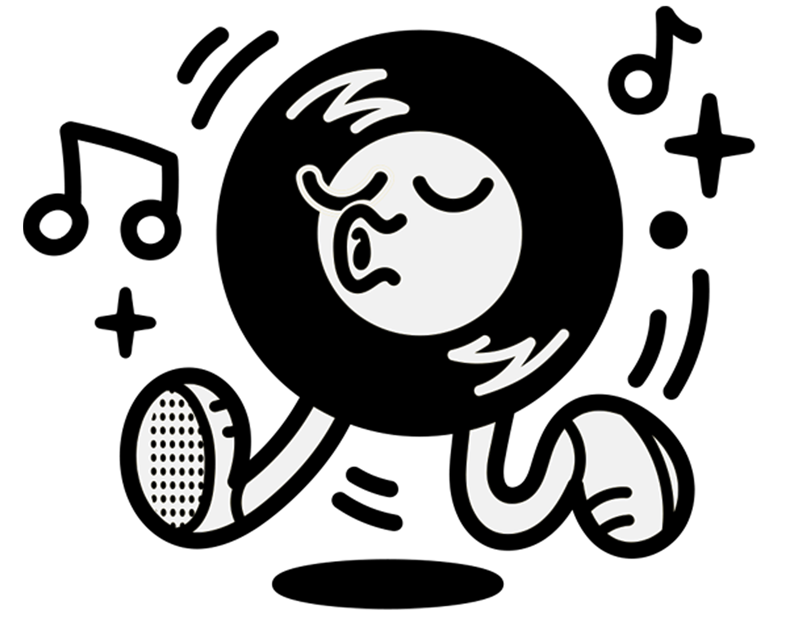- Artist:
- Tiziano Popoli
Burn The Night / Bruciare La Notte: Original Recordings, 1983-1989: CD
€15,99
Emails will be sent by or on behalf of Universal Music Operations Ltd, 4 Pancras Square, London. N1C 4AG, UK. +44 (0)20 3932 8400. You may withdraw your consent at any time. See Privacy Policy here.
Release date: 22 January, 2021
Catalogue number: RERVNG13CD
UPC: 00747742382635
Tiziano Popoli’s Burn the Night / Bruciare la Notte: Original Recordings, 1983–1989 is an anthology collected from scores, soundtracks, and commissions that blossomed out of the artist’s independent explorations and collaborations in and around Bologna, Italy. Burn the Night examines Popoli’s unusual musical meshing of minimalism and instrumental pop, a distinct form embracing the gravity of negative space to contrast color, tone, and the phantom sounds of lyrical, human expression. Born in the small village of Vignola in 1955, Popoli grew up with music in his family, and, in the late 1970s, it became his life’s pursuit, enrolling in the Conservatorio Giovanni Battista Martini in Bologna after a brief detour as a law student. Identifying with the Italian counterculture’s rejection of the bourgeoisie, but skeptical of its actors’ preoccupation with drugs and misguided debauchery, Popoli’s own moral compass found direction during a post-graduation trip to India in 1979. Arriving by car through the Khyber Pass, Popoli recalled a journey full of “confirmations and illuminations, but also of disillusion and, I believe, of personal growth” informed by his lone encounters with underserved communities.
Utilizing his relative privilege for good upon returning to Bologna, Popoli promoted the potential of music as a community-building agent, and advocated for the perception shifting advantages of its avant-garde. Exposed to the canon of 20th century new music while at the conservatory, and more importantly, the advancements of western minimalists such as Steve Reich, Philip Glass, and Terry Riley, Popoli aligned himself with a network of composers such as Franco Battiato, Lino Capra Vaccina, and Giusto Pio to establish a new era of radical music, ethos, and innovation in Italian music. No such minimalist scene existed by name at the time though; the tag retroactively pinned to Popoli and his peers’ unassuming position on the periphery of the avant-garde. Technology played a pivotal role within this anti-movement, and Popoli’s desire to evolve sound and technique was fulfilled with the arrival of the Yamaha DX7 synthesizer in 1983. With the advent of MIDI protocol, Popoli was able to program raw, melodic patterns on a Roland TR909 sequencer and voice them through the DX7’s range of polyphonic and timbrical possibilities. This process is heard prominently on many of the fourteen tracks collected for Burn the Night, and Scorie, Popoli’s first major recording. Scorie, the 1985 album created by Popoli with composer, conservatory colleague, and friend Marco Dalpane, was a meeting of like minds designed for the stage. It was also the first of several collaborations between Popoli and the Koiné Theater Company. As with Scorie, the music of Burn the Night features similar accompaniments for peers within broader creative contexts, namely the photographers Massimo Trenti and Roberto Monari, whose exhibitions Popoli created pop minimalist settings for.
“Pop music is something that––somehow–– made its way into my music, even the [music] I write today,” explains Popoli. “What attracts me about this ‘genre,’ or rather, ‘attitude’ is probably the simplicity of its formal structure.” Popoli’s curiosity of pop music is explored at various lengths throughout Burn the Night, but never without a dose of the avant-garde for a particular potency. If you can imagine in this melee turning the dial to Radio City Bologna in 1983 and hearing “Blues Padani” (a piece commissioned for the terrestrial radio station), its strange, punctuated rhythms and patent, manipulated vocal samples, you would find yourself at the beginning of a burgeoning, unclassifiable musical subculture. Even if the fourteen tracks of Burn the Night complicate the easy categorization of Popoli’s music, the broad impact of his stark melodies and sharply rendered sounds end up both accessible and radical. Popoli never sought to jettison these sounds to an exclusive realm of listeners, but he did recognize a possibility in popularizing the avant-garde. Burn the Night / Bruciare la Notte: Original Recordings, 1993–1989 transmits Popoli’s music to modern airwaves tuned to distinct voices, and brings a playful display of spiraling lines and humanist speech. Or, to borrow a Popoli song title, a simple drawing amidst a storm of lines. Tiziano Popoli’s Burn the Night / Bruciare la Notte: Original Recordings, 1983–1989 arrives January 22nd, 2021 on digital and CD/LP formats via Freedom to Spend and RVNG Intl., featuring liner notes by Bradford Bailey and design by Will Work for Good. On behalf of Tiziano Popoli, a portion of the proceeds from this release will benefit Greenpeace.
- Label:
- RVNG

